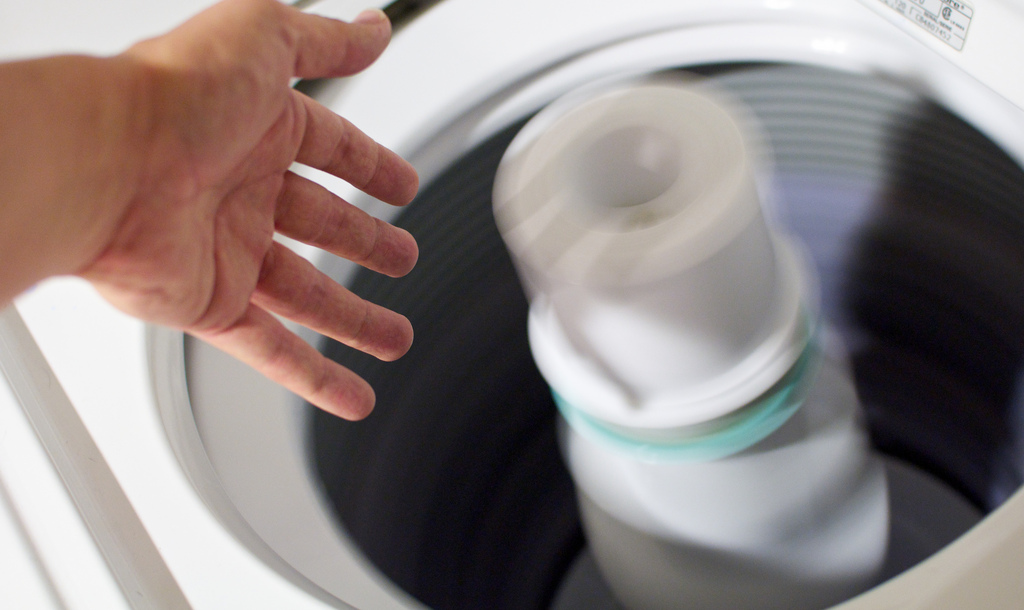8 Things that Put Your Washing Machine at Risk
A washing machine is an essential household appliance. It’s also a major financial investment. Here’s how to avoid common laundry-day mistakes that have the potential to damage your washer ... perhaps permanently.
1. Zippers
Besides snagging delicate clothes, zippers can catch in your washing machine’s drum. Zipper scratches on the doors of front loading washers are even suspected of perhaps causing the glass panel to explode.
Fix: Before doing a load of laundry, make sure any zipper tabs are pulled all the way to the top.
2. Brassieres
Your dainty “lady things” can actually be pretty rough on even the toughest washer. Hooks and underwires may damage the drum.
Fix: Hand wash, or stash your lingerie in a specially made mesh bag. An old pillow case works equally well, as long as you knot the end.
3. Coins
Another type of metal object that endangers your laundry machine is coins. Left unnoticed in a pocket or tote, these batter against your washer’s drum and glass door with even more force than zippers or hooks.
Fix: Check the pockets of all clothes before tossing them in the machine. Some folks claim that keeping any cash you find this way is a perk for doing the wash.
4. Cold water
Although washing with cold water saves energy and reduces shrinkage and fading of your natural-fiber clothes, you can have too much of a good thing. Your washing machine will perform better if you regularly run a maintenance cycle.
Fix: Set the (empty) machine to its hottest temperature, add a cup of vinegar and put the washer through its paces to descale and remove mineral deposits. Perform this task at least once a month – if you live in an area such as Arizona which has extremely hard water, savvy handymen recommend descaling every week.
5. Wet clothes
Leaving wet laundry in the machine long after the wash cycle has completed leads to unpleasant odors and possibly mold in both your clothes and your washer.
Fix: Remove finished wash loads promptly. When, for whatever reason, you can’t dry the laundry immediately, place it in a plastic laundry basket in a ventilated area to reduce the risk of smells and mildew. If you’re unable even to do that, at least open the washing machine door.
6. Too much detergent
Overdosing your washer with detergent won’t get your clothes cleaner – in fact it tends to leave them dingy due to leftover soap residue – and it just might damage your machine’s sensitive control panel.
Fix: Check the user’s manual to see how much detergent is optimal for your model, then use that as a measuring guide, especially if you have a modern high-efficiency washing machine. Out of laundry detergent? Resist the temptation to sub in dishwasher detergent; its high foaming action is really bad news for a clothes washer.
7. Too much electricity
A lightning strike or severe power surge can harm circuits and melt plastic components of any appliance containing a microprocessor, such as refrigerators, computers and washing machines.
Fix: Protect all expensive appliances: hire a licensed electrician to ground your electrical system adequately and install surge protectors. It is recommended to unplug your washer when not in use.
8. Too much laundry
Your washing machine is willing to work only so hard and no harder. Overstuffing it with dirty clothes tends to cause excessive wear on its suspension and bearings.
Fix: Check the manufacturer’s directions for your particular model’s capacity in pounds. Weigh a few sample loads to get an idea of what that looks like. Remember, items such as heavy denim work clothes or thick wool sweaters generally weigh more than the same volume of, say, polyester blouses.
Laura Firszt writes for Networx.com.
Updated December 30, 2018.
Looking for a Pro? Call us (866) 441-6648

Plumbing Average Costs
Plumbers Experiences

Emergency Gas Valve Repair Restored Our Heat When Winter Hit Hard

All Our New Home’s Electrical Work Done By One Skilled Contractor




